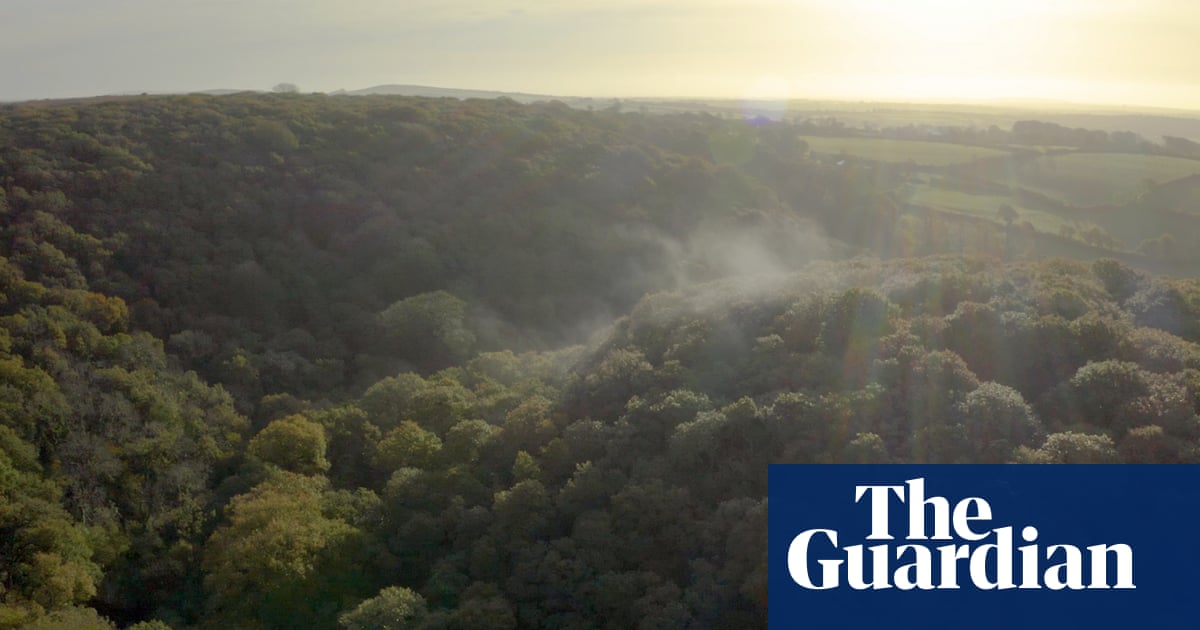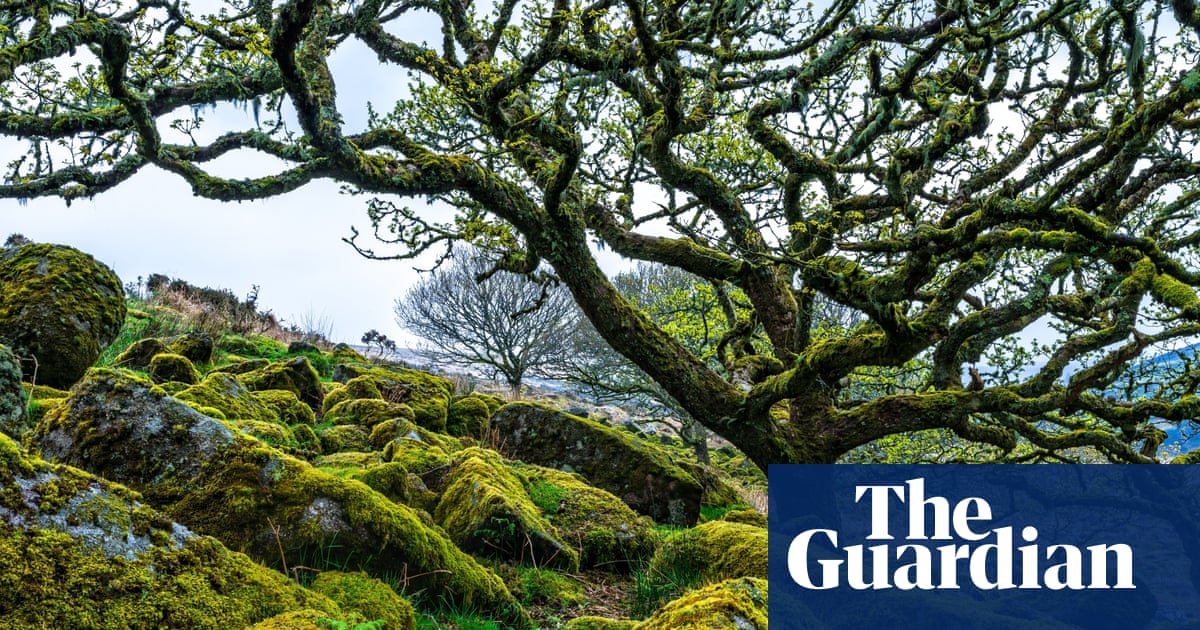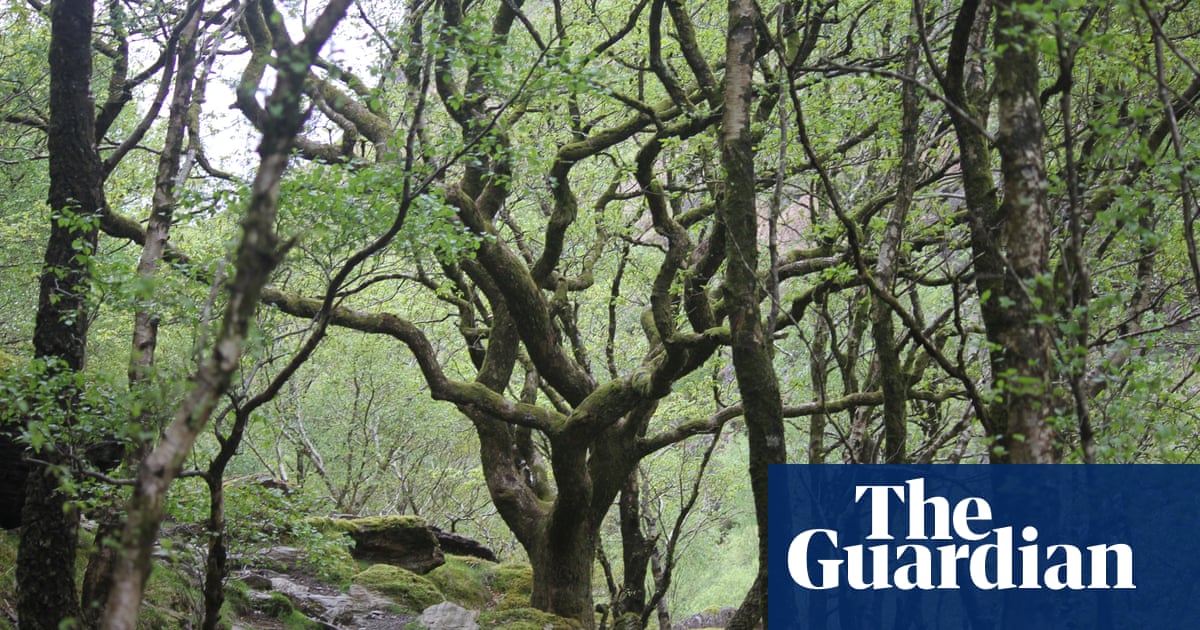
Tripling Britain’s temperate rainforest is the goal of a new charity founded by a veteran of the war in Afghanistan who found solace in this unique and biodiverse habitat.
The Thousand Year Trust is being launched this week by Merlin Hanbury-Tenison, who suffered post-traumatic stress disorder (PTSD) after three tours of Afghanistan and is now transforming his 120-hectare (300 acre) hill farm on Bodmin Moor into the largest rainforest restoration project in England and Wales.
The charity is working with local farmers, landowners and charities to identify land suitable to triple Cornwall’s estimated 1,200-1,600 hectares of surviving temperate rainforest, with the ultimate aim of tripling Britain’s surviving rainforest to 1m acres over the next 30 years.
“We’ve all grown up thinking of rainforests as tropical rainforests and that’s how I grew up, not realising there was a rainforest on my doorstep – a temperate rainforest, the most stunning habitat we have in the UK,” said Hanbury-Tenison, who is transforming his family farm with agroforestry, natural regeneration, planting 100,000 trees and farming free-ranging Highland cattle, Cornish black pigs and the local ponies.
The profile of temperate rainforest has soared in recent months after the success of Guy Shrubsole’s The Lost Rainforests of Britain, a Sunday Times bestseller, with David Attenborough also highlighting the unique importance of such habitat on his popular Wild Isles BBC TV series.
Temperate rainforests are particularly effective at sequestering carbon because of the density of growth and the carbon held in the canopy by epiphytes.
Shrubsole, who is a trustee of the Thousand Year Trust, said: “For too long, we had forgotten we even possessed this habitat – but now there is growing recognition of its wonders, and it seems to have really caught the public imagination. As people become re-enchanted with the magic of our rainforests, I hope more farmers, landowners and politicians will step up to help protect and regenerate them.”
Hanbury-Tenison took over his family farm, Cabilla, in Cornwall five years ago and found the temperate rainforest still surviving there to be a balm after working in London and spending a decade in the military.
“After London and with some of the experiences I’d had in Afghanistan bubbling to the surface I started to suffer from quite bad PTSD and I very much attribute the forest at Cabilla being a large part of what stopped me from getting really unwell,” he said.
Although 100,000 trees are being planted at Cabilla to add to its 40 hectares of rainforest, 40% of the forest restoration will be via natural regeneration, with the process accelerated by the rootling and seed-spreading of free-roaming pigs and protection for jays who bury acorns and inadvertently plant oaks.
The farm’s new income streams include agroforestry, direct selling the free-range meat it produces alongside carbon credits with the wilding potentially attracting further payments for biodiversity net gain and ecosystem services such as flood alleviation and improving water quality.
Hanbury-Tenison said: “The average upland hill farmer on Bodmin and Dartmoor at the moment takes between 85% and 92% of their annual income from EU subsidies. All of these subsidies are going by 2028. People say these farms are viable businesses that sell food – they’re not, they’re nine-tenths funded through subsidies and grants. We’re looking at alternative ways of producing food that put nature at the forefront.”
The trust will aim to buy land for rainforest restoration, but wilding uplands has been criticised in some regions for supposedly clearing working people from the land, although study of rewilding schemes found an increase of about 50% in jobs on the land. Knepp in West Sussex employed 23 people when traditionally farmed, with jobs increasing to 50 since the land was rewilded. Hanbury-Tenison said the charity’s first aim was always to work with the existing family farms to encourage new nature-positive ways for them to stay on the land.
Hanbury-Tenison said the charity was initially creating new Cornish rainforests and he is working with a cluster of farmers on Bodmin Moor to identify suitable land. “If we can turn that back up to 10,000-12,000 acres over the next five years, not of existing forest but growing forest, that will really prove the concept – that our uplands can be farmed not just for food production but for nature and for mental health and wellbeing and for ecosystem services and for carbon sequestration – all of these are so important for the end goal of a self-sustaining natural environment.”
Farms often experience tension when they are passed on to a new generation holding radically different ideas but Hanbury-Tenison says his father, now 87, has been a driving force behind reforestation and the charity. “He’s hugely involved and I would never do anything without sitting at his feet and asking for guidance. He’s like a schoolboy, he’s so excited by what we’re doing, he’s the inspiration for it and a huge catalyst.”












